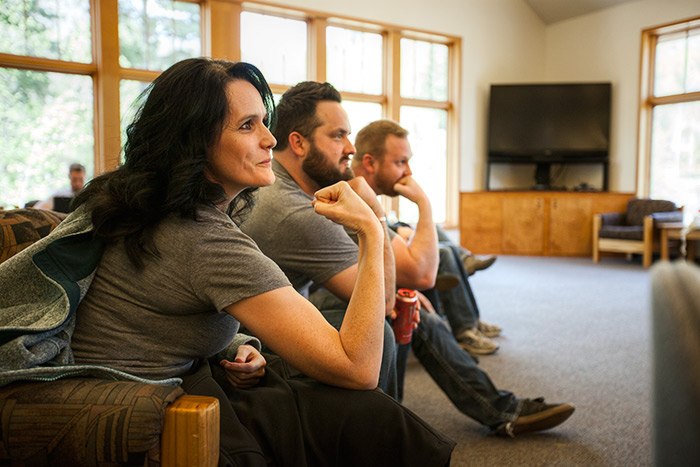Popular Interview Questions (And Why You Should Avoid Them)
The interviewing process can be overwhelming. You’re trying to gauge culture fit, determine qualifications, avoid bias, and compare multiple candidates—all while trying to make the individual on the other side of the table feel comfortable. If you haven’t prepared in advance, it’s easy to fall back on the most popular questions.
But the most popular interview questions might not always be the most effective interview questions.
Hiring is a big decision, and you only have a limited amount of time to get to know potential employees during an interview. That’s why it’s crucial to select interview questions that get to the heart of what you need to know. Below, we’ve listed some of the most clichéd interview questions and suggestions for what to ask instead. With good interview etiquette and strategic questions, you can master the interview process and bring in the perfect employee.
A quick note before we get started: always keep interview questions appropriate. Even if the situation feels casual, you are in a position of authority, and asking certain questions could lead to trouble. Professional HR training and recruiting software can help you organize your questions in advance so there’s no chance of asking something that should not be asked in an interview.
Alright—let’s take a look at some of the most popular interview questions and what you should ask instead.
The Question: How well do you work under pressure?
Why It’s a No-Go: No matter who you ask, job candidates will likely answer that they work well under pressure. This is a surface level question that doesn’t really tell you anything about a potential employee’s work habits or ability to manage time. When you ask this question, what you really want to know about is attitude and time management.
What to Ask Instead: Can you walk me through the process of how you manage your time and workflow?

The Question: Where do you see yourself in five years? Ten years?
Why You Should Skip It: Since this question is so common, candidates often have a prepared answer—one that probably includes your organization as a part of their long-term goals. Asking this question likely won’t yield the information you really want to know: is this candidate invested in your company and this role? There are more effective ways to uncover those details.
What to Ask Instead: What made you decide to apply at our company?
The Question: What are your biggest strengths?
Why You Should Pass: This question is too big and broad. You want to know about the candidate’s strengths that are relevant to the job, so get specific and ask a more focused question. When you leave a wide scope, your candidate may answer with general qualities instead of their attributes that relate to the role.
What to Ask Instead: What are three or four strengths you believe you’d need to be successful in this position?

The Question: Can you tell me a little about yourself?
Why It’s No Good: This question is also too general. While it might be entertaining to hear about the candidate’s cake decorating hobbies or affinity for rock climbing, what you want to know is their educational and work background. Don’t fall into the trap of thinking that you need questions like this to learn about the interviewee’s personality. You will naturally get a sense for them as you ask meaningful questions and listen to meaningful answers.
What to Ask Instead: Can you summarize your educational and work experience for me?

The Question: Will you tell me about your last job?
Why It Shouldn’t Make the Cut: This question is both too broad and too narrow. It is too broad in the sense that it could bring up any number of answers, many of which probably won’t help you determine how the candidate will fit at your company; it’s too narrow in that it limits the candidate to speak only about experiences from their last position. If the candidate wants to show that they are a team player, and the best example comes from another previous job, they may have to scramble and give a half-answer to your question.
What to Ask Instead: Can you tell me about your proudest moment at work?
The Question: What is your greatest weakness?
Why You Should Opt Out: This is a job interview, not a superhero movie. Asking someone for their greatest weakness usually invites a humble brag (“my greatest weakness is that I work too hard”) and it doesn’t help you get to really know the candidate. Instead, ask a more specific question that is clearly work-related. Asking a candidate to describe a specific situation generally yields much better results.
What to Ask Instead: Can you tell me about a time where you took a risk at work and succeeded? A time that you took a risk at work and failed? What did you learn from those two instances?

Asking Effective Interview Questions
The examples above should give you an idea why popular interview questions may not always help you to determine the best candidate for the job. It really comes down to planning ahead of time what you’d like to know and then identifying the types of questions that will give your candidate an opportunity to share that information. With a little preparation and thoughtful planning, you will be able to connect with candidates and find the best hires.
If you’d like to read more tips and advice about streamlining your hiring process, check our recent post: How to Find and Hire the Right Employees for Your Team.
Get caught up every month on all things HR. Don't worry, we promise we won't spam you.
Tori Fica is a copywriter for BambooHR, the leading HR software solution for small and medium businesses. Through research, analysis, and writing, she creates content to help HR professionals think and plan more strategically. Her focus is on taking complex ideas and in-depth research and turning them into clear, digestible pieces of content.









